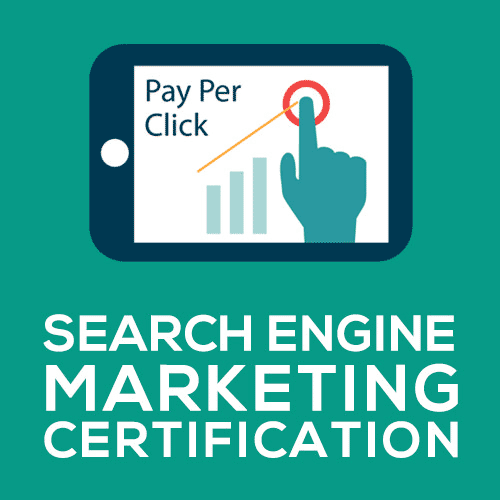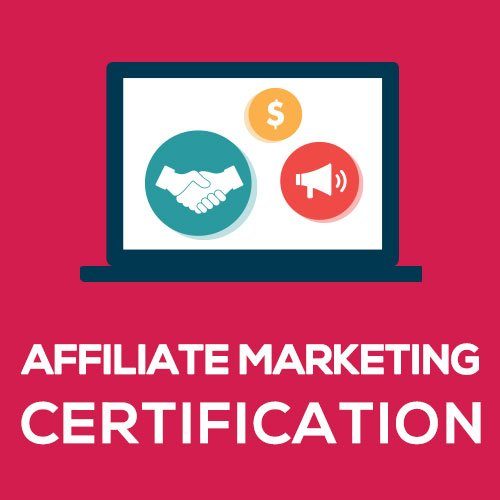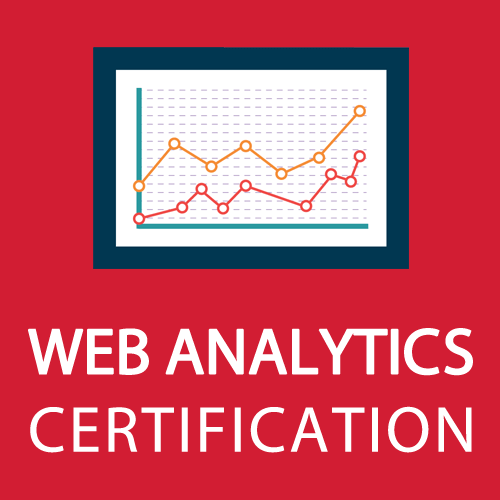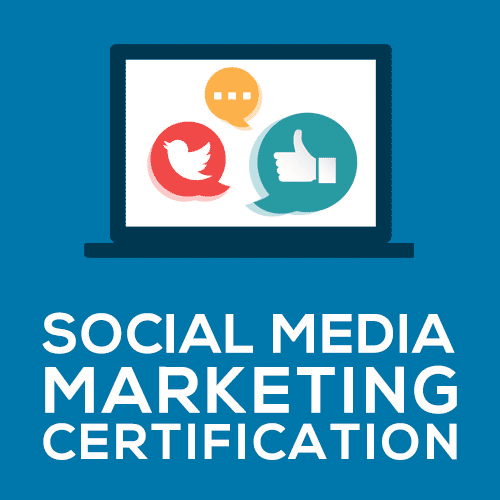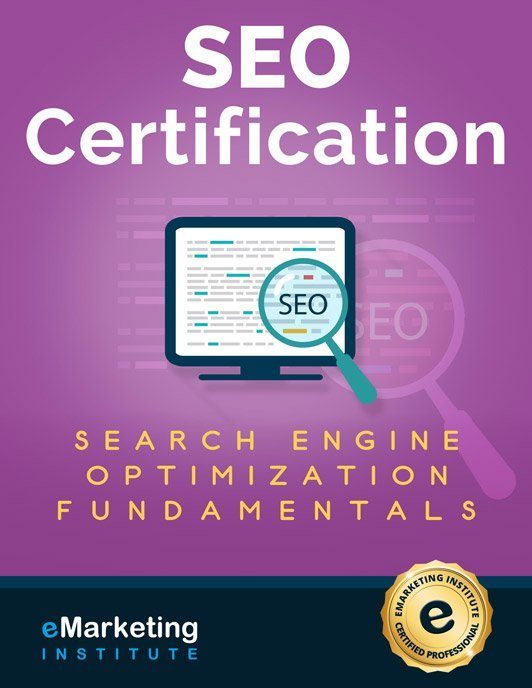
SEO Certification Course (FREE)
- Everything is 100% FREE!
- 156 Pages eBook
- FREE Course and Certification
- Difficulty Level: Beginners
Sign up to this free course
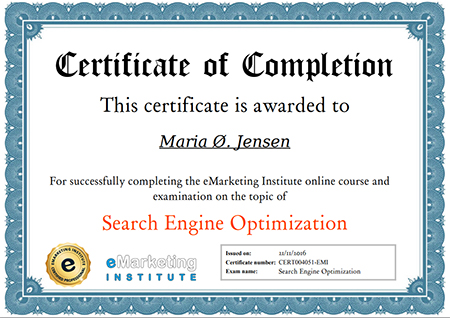
SEO CERTIFICATION
- Get a Professional Certification
- Showcase Your Skills
- Improve Your CV/Resume
- Grow Your SEO Career
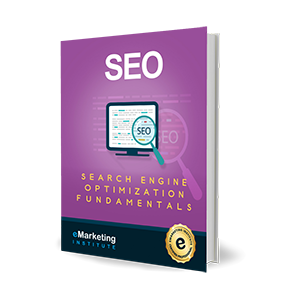
COURSE MATERIALS
- Free eBook: SEO for beginners
- HTML and PDF-format
- 156 pages
- 50 sample questions
- Knowledge required to pass test
SEO COURSE OVERVIEW
Although search engine optimization (SEO) is a part of search engine marketing, this topics is a very important segment of internet marketing, which is why this course is developed to explain you the essence of search engine optimization and how to use it to improve your online business.
You will first learn what search engines are, how they index websites and how they rank them. This is essential in order to be able to figure out how to optimize your website for search engines.
Search engine friendly design is another topic focused on designing and improving your website, so that it is easily discovered by search engines, which will then position the website in the search engine result pages. Different elements will help you with this task, including title and meta tags, link structure, and you will learn how to optimize each of these elements.
Understanding how keywords work and why keyword research is an important part of SEO will help you create content that is SEO friendly, and successfully indexed. Additionally, you will need to have in mind how Google ranks websites, as this will help you focus on elements of the website which will increase ranking. Since search engines use algorithms to obtain information about websites and rank them based on the relevance, it is also helpful to find out more about how search engine algorithms work, which why the course features a chapter on algorithms and chronology of their updates.
Link building is also important part of this course, as it shows you the ways to obtain links, types of links that can be obtained, and which tactics to use in link building in order to increase the number of links to your website, as this is an inseparable part of SEO. Links to your website help you increase the authority of your website and its relevance, so this part of the e-book will guide you through the process of obtaining links and link building metrics to have in mind.
In the process of website optimization, webmasters have to use certain tools that will help with optimizing the website and analyzing different aspects that could affect ranking. This is why you will learn about different search engine protocols, how to track and measure success, and which tools to use to do so. Having learnt about all of the SEO aspects and methods individually, you are ready to combine everything and create a SEO strategy that is going to help you grow your business and achieve your goals. Detailed plan on how to do so is part of this course, with a set of actions recommend if you are in the process of setting up your website, as well as a set of actions advisable for those who already have a website, but want to optimize it in order to follow best practices and use available resources to increase ranking in the search engine results pages.
Being familiar with common misconceptions can be a helpful reference so that you are aware what is considered good practice, and what can have negative influence on your website. Additional SEO recommendations are available to help you create a strategy that is following guidelines but using the greatest potential of search engine optimization.
CHAPTER CONTENT
The first chapter presents the major topics related to search engine optimization, which will be covered in the e-book. The purpose of this outline is to briefly explain the most important topics which are necessary for understanding and using SEO.
2. Introduction to Search Engine Optimization
Starting with the definition of what SEO is, this chapter continues with explanations on why SEO is important part of marketing strategy, as well as mentioning some of the common SEO techniques. This is a perfect starting point for anyone who is new to SEO.
3. Understanding Search Engines
In order to be successful in SEO, you have to understand how search engines work, in terms of indexing and ranking. You will also find out how people interact with search engines, what search engine marketing is and why it matters.
4. Search Engine Friendly Site Design and Development
Here you will learn the basics of search engine friendly websites, which includes topics such as indexable content, title and meta tags, link structure, nofollow links, keyword usage and URL structures. Search engine friendly websites are successfully indexed by search engines and thus presented in the search engines results, which is why understanding the principles of how to create search engine friendly website is very important.
In this chapter you will learn what keyword research is and why this is an important part of SEO. This is a very helpful section as phases of keyword research are listed in chronological order allowing you to follow steps to discover the keyword relevant to your website. The chapter also features a lot of recommendations on keyword research tools, including suggestions on the tools you could use, with both paid and free tools mentioned.
Since SEO is the process through which you ultimately try to improve ranking of your website, you have to understand how Google ranking works and how some good practices can help you improve Google rank.
7. Google Panda and Other Algorithm Updates
Positioning is essential part of SEO, so the goal of this chapter is to understand the process of website positioning and ranking inside search engines. Search engines use algorithms to index websites and in this chapter you will learn about evolution of the algorithms, and what kind of practices are recommended in order for a website to be indexed. The chapter features chronology of updates so you can learn how algorithms evolved over time.
After a short introduction to link building and its importance in SEO, the chapter continues with defining types of links that can be obtained, link building tactics and metrics. You will also find out how to start a link building campaign, the difference between good and bad link building, as well as other tips that will help you with link building.
9. Search Engine Tools and Services for Webmasters
The following chapter is focused on recommending services and tools webmasters should use in the process of search engine optimization. These include search engine protocols, common search engine myths and misconceptions, tips on how to measure and track success, and SEO tools to use.
10. Steps to Optimize Your Website
Having learnt about what search engine optimization is and some of best practices and tools that are available, you are ready to implement this on your website and you will learn to do so in this chapter. The steps to optimize your website are divided into two categories, before you create a website, and steps that can be done after you have already created a website.
Here you can read about SEO recommendations that will help you apply best practices in the process of SEO, including following guidelines, staying up to date. It is important to think about search engines and about the visitors when optimizing your website. This chapter also features a list of SEO dos and don’ts.
12. Search Engine Optimization Glossary
The glossary features an extensive list of terminology related to search engine optimization that will be helpful, especially if the topic of SEO is somewhat new to you and you are not completely sure what each term refers to.
Contains list of questions and their answers for exercise. This is a great way to test your knowledge.
The conclusion sums up the major points presented in the e-book and it highlights the importance of SEO nowadays. The chapter also features a graph showing how the number of internet users has grown over the years, which is why SEO and internet marketing in general have become so significant in modern business.
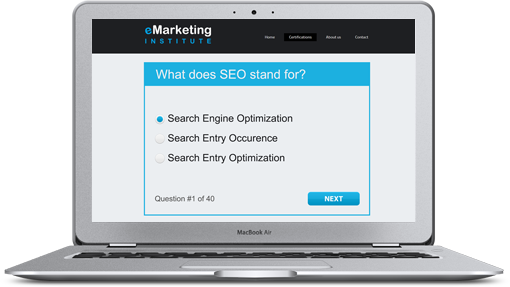
HOW TO PASS EXAM
- The pass score is 50%. There are 50 multiple choice questions in each exam. In order to get certified you need to answer correct on 25 out of 50 questions.
- Time limit: 60 minutes.
- The difficulty level of this course is: Beginners level.
FREQUENTLY ASKED QUESTIONS
Everything you find on eMarketing Institute is absolutely free. All our courses are 100% free. All our ebooks are 100% free. There are no hidden costs. There are no subscribtion fees.
It seems people really like free stuff. So far more than 300.000 happy students from more than 100 different countries have signed up for our free courses and have downloaded our free ebooks. According to Alexa Traffic Ranks, eMarketing Institute is among the top 1% most popular websites worldwide. We are very grateful for the support we have.
You get a free ebook, which includes the full course material (all our ebooks are in HTML and PDF-format, and more than 150-pages of course materials) + you get permission to take a test. If you pass the test, you will get notified via email. You can then login to your account and download your professional certification, which can be found in PDF-format.
All our courses are beginners level. Even though the courses are beginners level, we advise, that you read the course material before taking your test. There are 50 questions in each exam. The passing score is 50%. The time limit is 60 minutes (i.e. 1 hour). This means, that you need to answer correct on at least 25 out of 50 questions, within 1 hour, in order to pass the test. The questions are multiple choice questions. Once you pass you can download your certification.
You can take as many certifications as you like. There is no limit. At the moment you can signup for any (or all) of these online marketing certification programs (all are 100% FREE):
Free Online Marketing Certification Course
Free Affiliate Marketing Certification Course
Free Content Marketing Marketing Certification Course
Free Blogging Certification Course
Free E-Commerce Certification Course
Free Email Marketing Certification Course
Free Search Engine Marketing Certification Course
Free Social Media Marketing Certification Course
You can retake the test. It’s still 100% FREE.
Each retake test is 100% FREE.
The tests are beginners level, and you need to answer 50 multiple choice questions (Passing score: 50%. Time limit: 60 minutes).
All our courses are beginners level. There are 50 questions in each exam. The questions are multiple choice questions, with either 3 or 4 different options. In order to get certified you need to answer correct on 25 out of 50 questions (Passing score: 50%. Time limit: 60 minutes). Once you pass the exam, you can download your certification.
To summarize: You need to answer correct on at least 50% of the questions. If you get less than 50%, you probably need to read your ebook one more time, and once you are ready to retake your exam, you login to your account, and try again.
No. Once you pass your test, and receive your certificate, you are certified for life. For instance if do great on your exam, and thereby get your SEO Certification, get Web Analytics Certified or a Social Media Marketing Certification, then you have it, and we will not ask you to give it back to us, or remove it from your LinkedIn profile, CV or resume. Once you pass the test, the certification is yours to keep.
Great question! Think about this… How many people would have a Facebook profile, if it wasn’t free? How many people would do searches on Google if it wasn’t free? How many people would use Skype, if it wasn’t free? Did Facebook, Google and Skype do great, while being free? Yes. We also believe, that free stuff is great. That’s why, all our courses are 100% free.
You can find our contact details here. You are always welcome to send us an email at support@emarketinginstitute.org
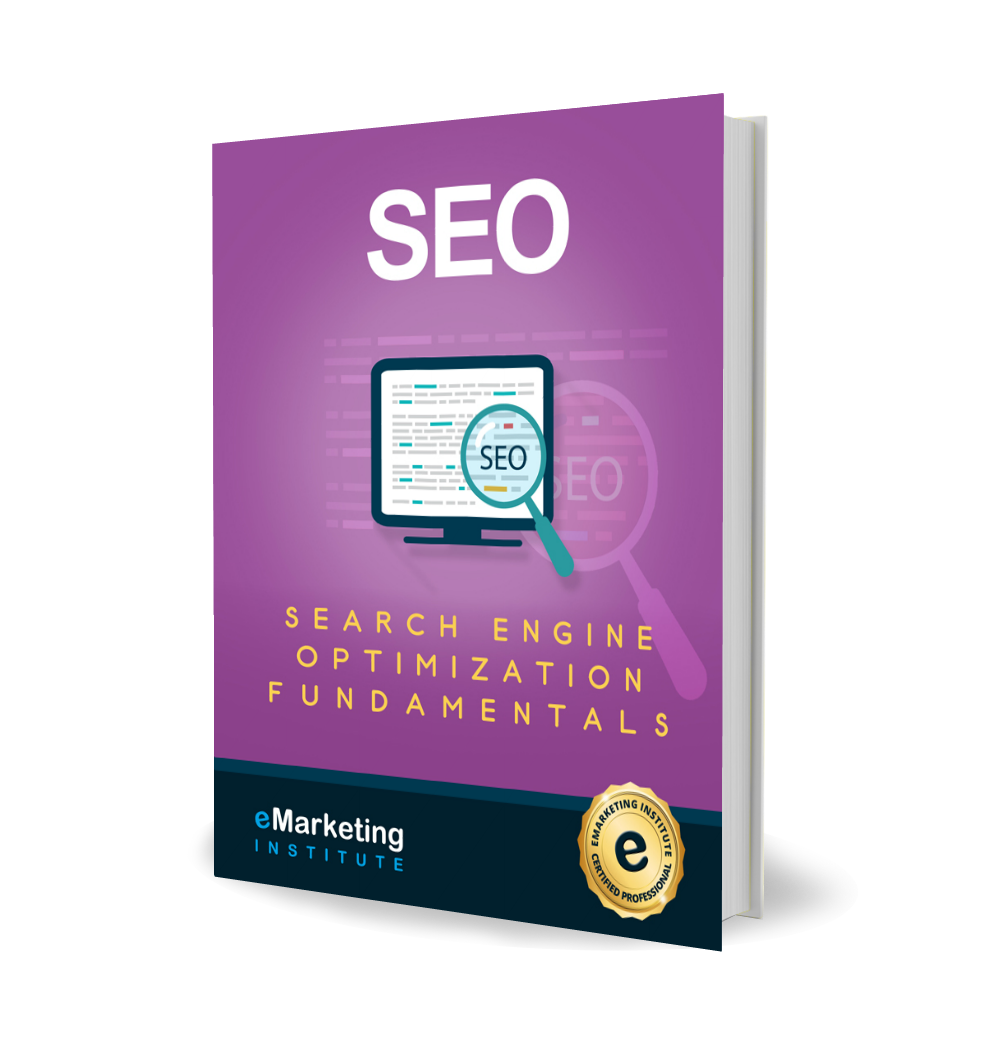
SEO for beginners
- 100% FREE!
- 156 Pages eBook
- Professional Course
- Difficulty Level: Beginners

